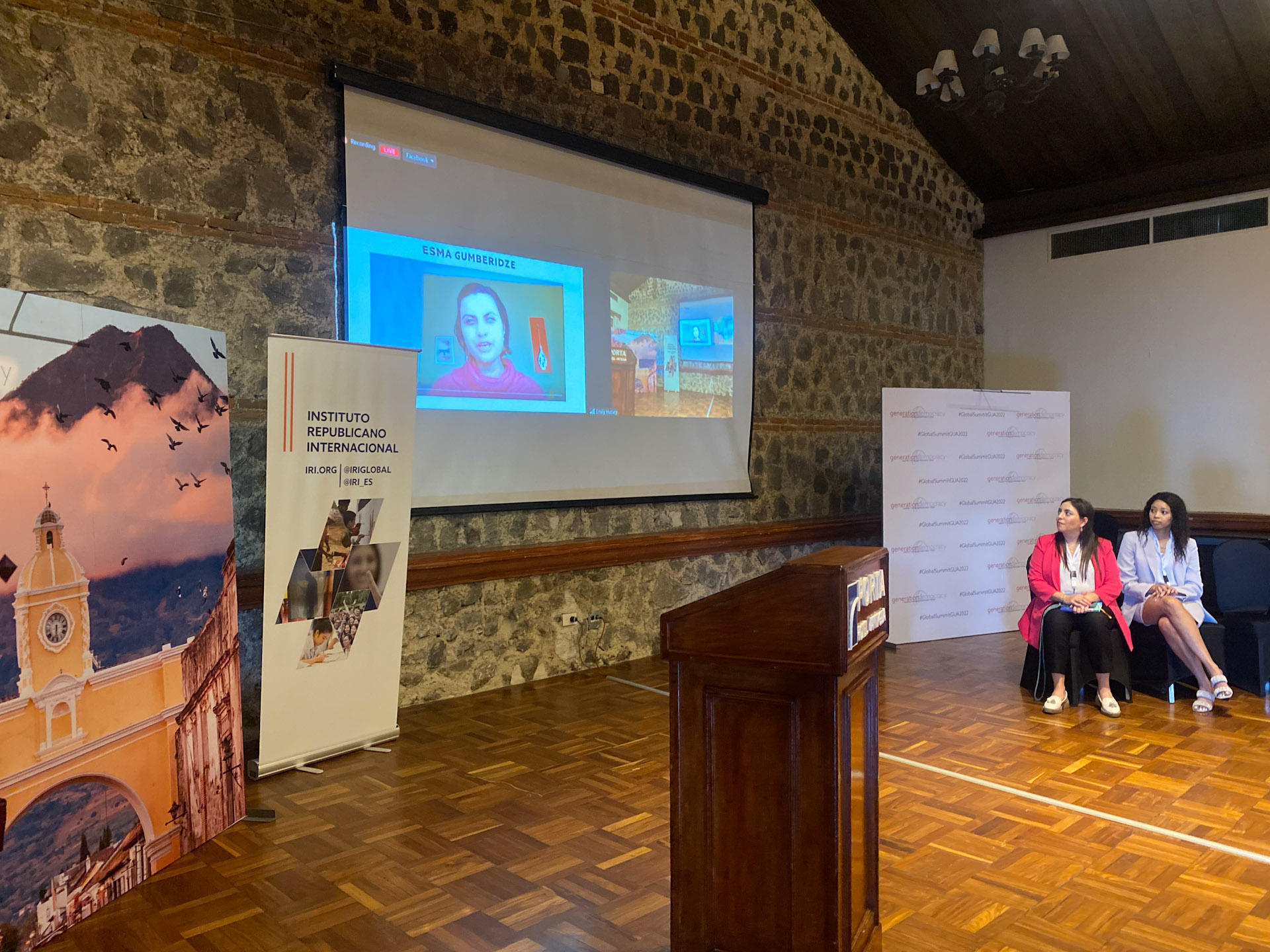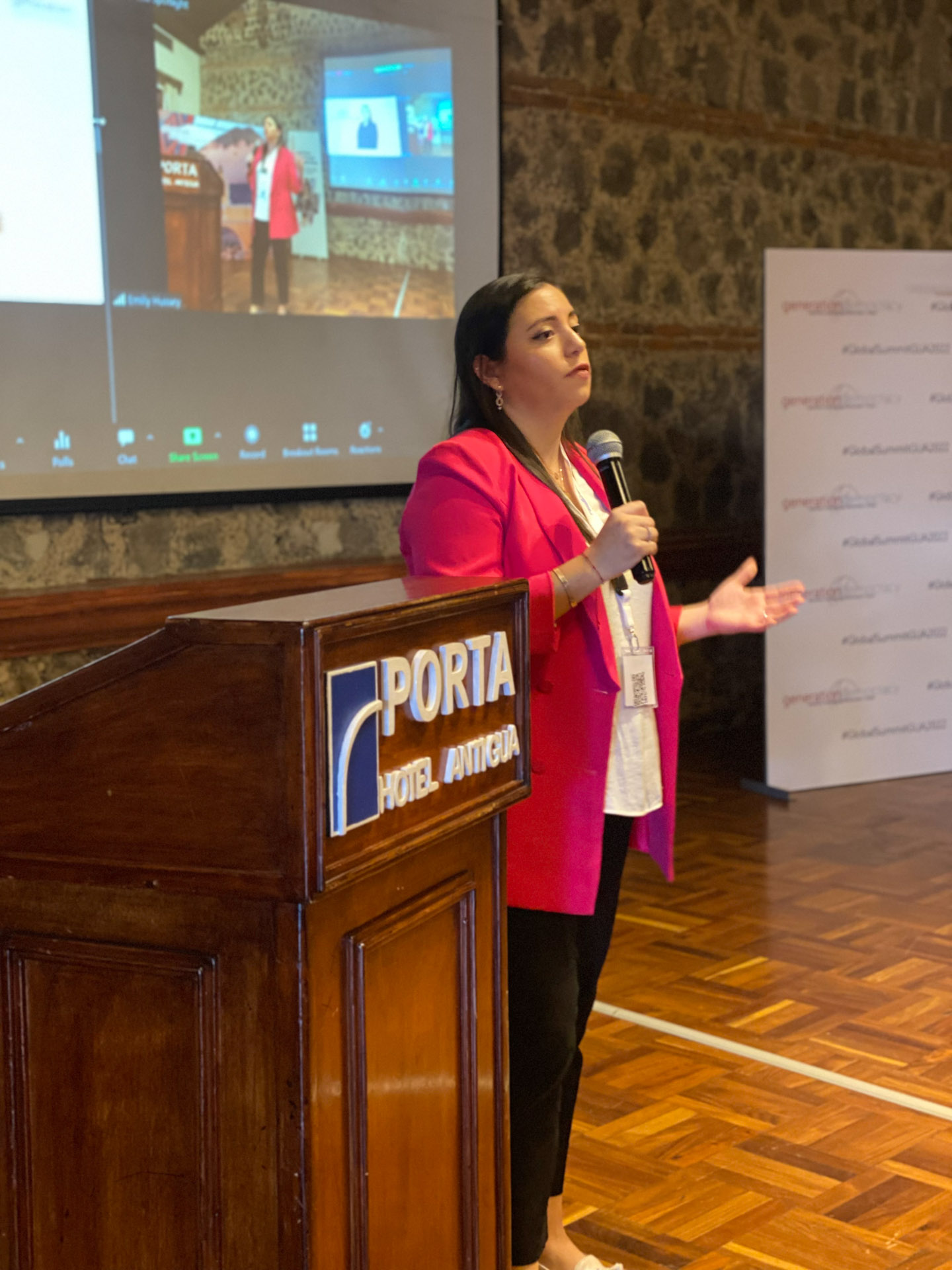Amplifying Youth Voices: How Should Young People Be Included in The S4D Processes?

From November 13-16, 2022, the International Republican Institute’s (IRI) Generation Democracy (GenDem) program convened 36 civil society and political leaders from 25 countries, in Antigua, Guatemala, for the GenDem Global Summit. At the Summit, participants identified strategies and exchanged best practices on innovative ways young people can address the world’s most pressing issues.
IRI facilitated the “#UnitingYouth for Democracy” event, which included a panel focused on how members have engaged in youth-led collective action around the Summit for Democracy’s (S4D) pillars of human rights, anti-corruption, and countering authoritarianism. This panel was accompanied by discussion groups, where participants developed recommendations for youth to be involved in the second S4D.
Upon their return home from Guatemala, Global Summit participants shared the outputs from the workshop during an informal, virtual consultation with S4D planners from USAID and the Department of State, as well as the leadership of the S4D Youth Political and Civic Engagement Cohort, which have been summarized below.
Engaging Young People Prior to S4D

According to Global Summit participants, S4D planners need to establish a plan for inclusivity of all people, no matter their identity, in particular one that targets the urban/rural divide. Consultations, for example, are only available to individuals who have internet access. This leaves out the voices of some of the world’s most vulnerable communities.
S4D planners and country representatives should support in-person, country-level consultations led by young leaders who are trusted by their peers and who can access youth in hard-to-reach communities. Young leaders from networks like Generation Democracy, for example, are well-positioned and have the capacity and willingness to facilitate this engagement. They can solicit feedback on how these communities perceive democracy, which can be shared with the national representatives making commitments as part of S4D.
Engaging Young People During to S4D
Young people need to be mainstreamed into the sessions at S4D and not confined to sessions focusing solely on “youth issues,” ensuring they are given the opportunity to meaningfully engage in intergenerational conversations. Youth perspectives are key to all areas of discussion. Young people who are government officials and have experience with the policy process should be prioritized as representatives within country delegations.
There needs to be increased engagement of civil society organizations and individual advocates – in particular those representing vulnerable and underrepresented communities. Organizations and activists should not only be from invited democracies, but also come from countries that are still struggling with democratic development. This will ensure knowledge, support, and motivation are shared with young changemakers operating in challenging environments.
Engaging Young People Following to S4D
A takeaway from the GenDem Global Summit was that many young people who are highly engaged in politics, government, and civil society in their own country are unaware of S4D. There needs to be intentional efforts to share the outputs of S4D and ways to be involved in the Year of Action with youth through media campaigns that target their peers on the platforms they use.
Mechanisms that track S4D related activities and country-level commitments need to be synchronized and easy-to-use, with young people providing feedback on the format of this platform. Youth should also be involved in reviewing the country-level commitments and be integrated into the process for holding countries accountable to meet them.
As we approach the upcoming S4D, IRI will continue to advocate for youth voices throughout the mentioned processes and raise the voices of our youth partners.
Top